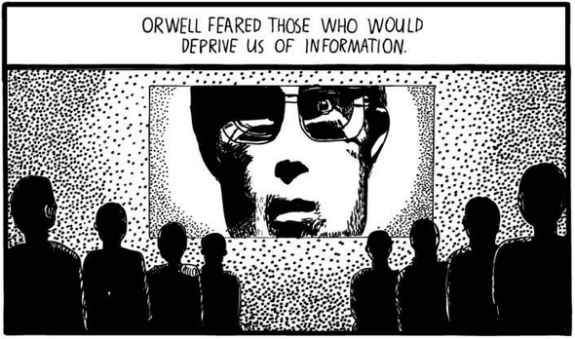“There are things known and there are things unknown, and in between are the doors of perception.” – Aldous Huxley

There are known knowns. These are things we know that we know. There are known unknowns. That is to say, there are things that we know we don’t know. But there are also unknown unknowns. There are things we don’t know we don’t know.
“When you understand,” Brandy says, “that what you’re telling is just a story. It isn’t happening anymore. When you realize the story you’re telling is just words, when you can just crumble up and throw your past in the trashcan,” Brandy says, “then we’ll figure out who you’re going to be.”
When John Howard contested the 2007 election, he stood on his interest rate record. The Interest rates had been – on average – lower than when Labor was in office. After Labor’s election, interest rates didn’t climb as had been predicted by the Liberals, so the mantra changed. We were told that interest rates would be even lower if we didn’t have a Labor Government.
At some point, this changed again. Low interest rates become a sign that the economy was in crisis. They were a sign of the weakness in the Australian economy. Which, to some extent, is true. As to how much that weakness is the result of Government policy and how much a result of the high Australian dollar is a matter that can be debated, but the fact remains that the Reserve Bank increases interest rates to slow down an overheating economy and reduces them to stimulate a flagging economy. Depending on what else is happening, a fall, rise or no movement at all may be a cause for concern or celebration.
However, while politics has always been a matter of trying to talk up your achievements and imply that your opponent is not as good as you, we’ve usually relied on the media as some sort of arbiter, pointing out obvious exaggerations, educating us on the expectations, and informing us so that we can make informed decisions. We don’t expect them to simply re-write press releases.
Interpreting history is always political. Part of the difficulty is that we only have one result and it’s always possible to make an argument that it was the best – or worst – result possible. Just as the Liberals argue that things would have been better if they’d been in charge of the economy, it’s possible for me to argue that the Melbourne Football Club would have been better off if they’d appointed me as coach last year. All right, my lack of any qualifications would have been controversial, but it’s hard to argue that they’d have been worse off! Whatever the reality, all we have is what happened, and it’s always easy to make a case for the thing that wasn’t done, using some ideal “if only” scenario.
“If only Rudd hadn’t spent all that money in 2008, we wouldn’t be in debt now. They claimed we were about to be hit by the worst recession in eighty years and the economy actually grew. If the Liberals had been in charge they wouldn’t have spent any money on insulation and school halls or given handouts of $900, and the economy would have grown twice as fast and we could have put more into cancer research leading to world peace and a Nobel Prize for every Australian.”
And, of course, we’re going to hear various theories about replacing Rudd with Gillard, and then back again. It’s perfectly reasonable to argue that Rudd saved the Labor Party from a complete wipe-out. But it’s just as reasonable to argue that if the party had stuck with Gillard, they’d have been more credible and, while Rudd was losing support from his initial surge, Gillard would have slowly increased as we got closer to the election. It’s possible to argue that Labor should have waited as long as possible in the hope that we go to war with Syria – always a boost for a Government. Whatever your point of view, we’ll never know if you’re right and there is no way you can prove it, and we’ll never know for sure.
So tempting and all as it is to pontificate about what Labor should have done, perhaps it’s time to start thinking about the future. What’s the way forward? What should the Labor Party do NOW?
More importantly, what should you do now?
Like what we do at The AIMN?
You’ll like it even more knowing that your donation will help us to keep up the good fight.
Chuck in a few bucks and see just how far it goes!
Your contribution to help with the running costs of this site will be gratefully accepted.
You can donate through PayPal or credit card via the button below, or donate via bank transfer: BSB: 062500; A/c no: 10495969










